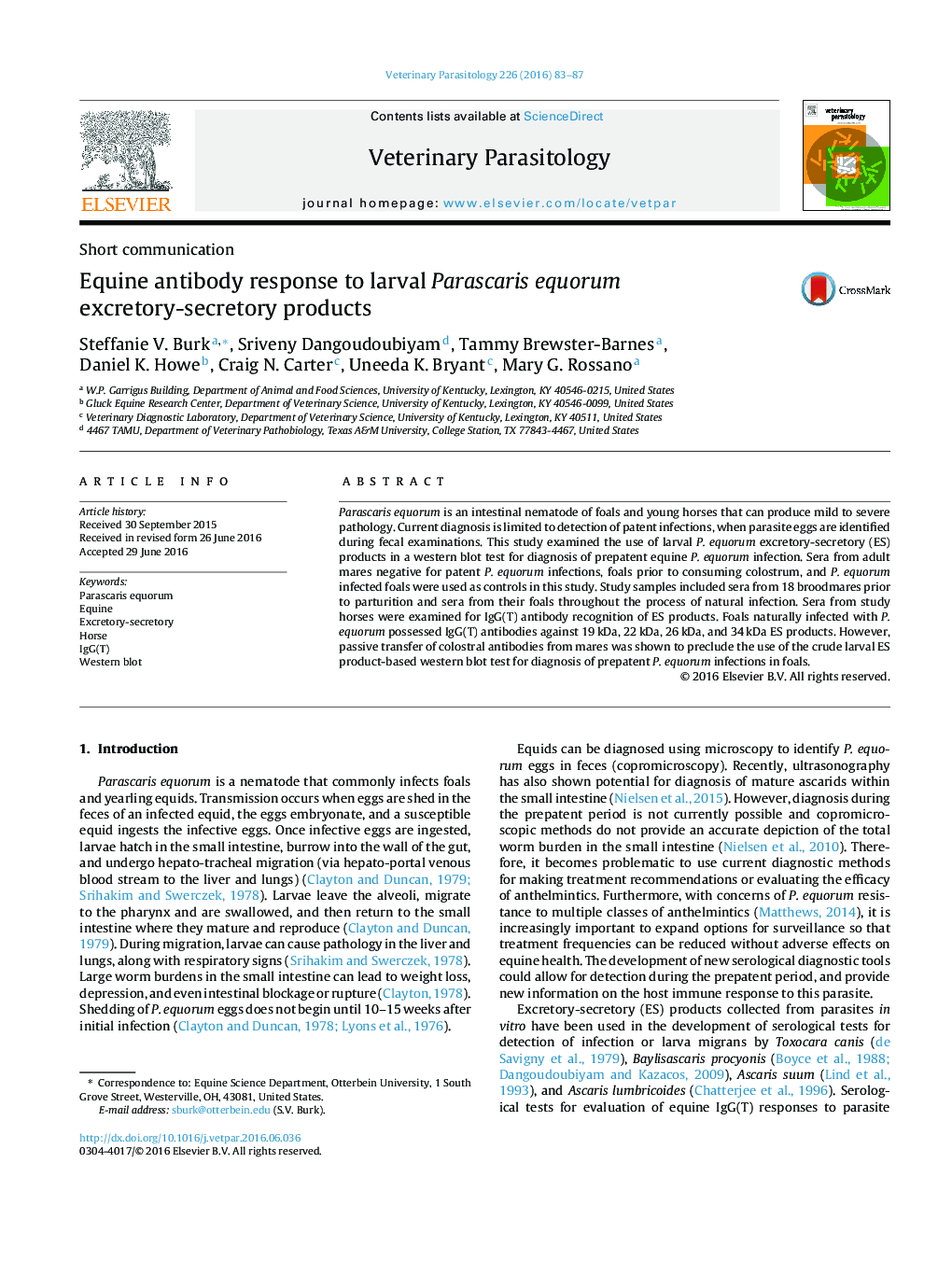| Article ID | Journal | Published Year | Pages | File Type |
|---|---|---|---|---|
| 5802057 | Veterinary Parasitology | 2016 | 5 Pages |
â¢Foal sera were collected as foals acquired Parascaris equorum infection.â¢Western blots indicated IgG(T) recognition of larval excretory-secretory products.â¢Mares passively transferred antibodies recognizing P. equorum products to foals.â¢Foal antibodies recognized 19 kDa, 22 kDa, 26 kDa, and 34 kDa molecules.
Parascaris equorum is an intestinal nematode of foals and young horses that can produce mild to severe pathology. Current diagnosis is limited to detection of patent infections, when parasite eggs are identified during fecal examinations. This study examined the use of larval P. equorum excretory-secretory (ES) products in a western blot test for diagnosis of prepatent equine P. equorum infection. Sera from adult mares negative for patent P. equorum infections, foals prior to consuming colostrum, and P. equorum infected foals were used as controls in this study. Study samples included sera from 18 broodmares prior to parturition and sera from their foals throughout the process of natural infection. Sera from study horses were examined for IgG(T) antibody recognition of ES products. Foals naturally infected with P. equorum possessed IgG(T) antibodies against 19Â kDa, 22Â kDa, 26Â kDa, and 34Â kDa ES products. However, passive transfer of colostral antibodies from mares was shown to preclude the use of the crude larval ES product-based western blot test for diagnosis of prepatent P. equorum infections in foals.
